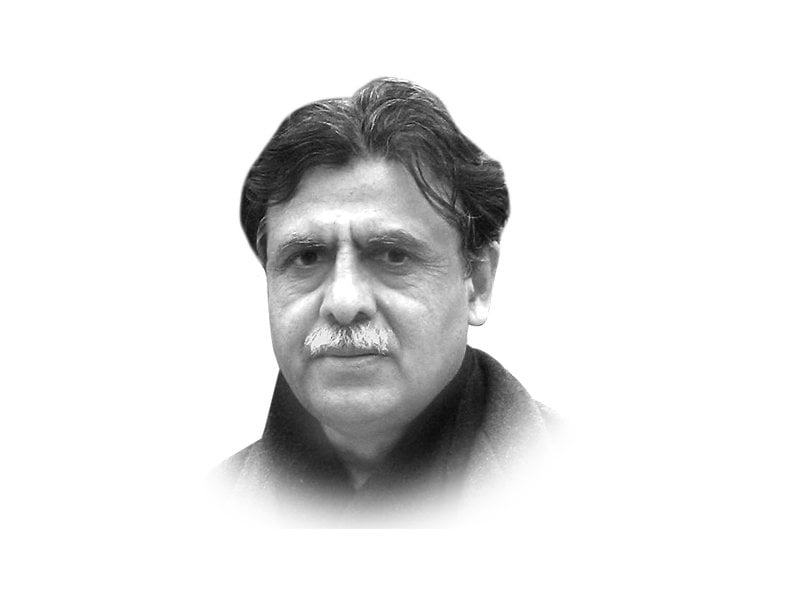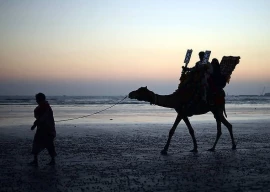
The Pathankot attack once again signifies the outreach of the perpetrators who were able to extend their operation from the conflict zone of Jammu and Kashmir to the settled areas of the Indian state. The incident may not have been an instant reaction to Narendra Modi’s visit to Lahore in terms of its planning, but quite evidently it showed the state of readiness of the perpetrators. The initial measured Indian reaction provided some space to both the countries to mull over their options.
Pathankot is strategically located en route to the hilly states of Himachal Pradesh and Jammu and Kashmir. It also borders a Pakistani district along the dicey divide created by the river Ravi and its tributaries. The attack couldn’t be averted despite heavy patrolling along the fenced border. It has been alleged that the perpetrators came from across the international border. At the same time, the incident raises some serious questions about the ability and capacity of the Indian security forces to grapple with such situations. Hundreds of guards were deployed on security duty at the airbase, but the terrorists were still able to scale its high walls and station themselves in an abandoned barrack for hours with loads of live ammunition before launching the strike.
While Pakistan has suffered worse attacks on its sensitive military and defence installations in the past, it is time now to come out of the victimhood syndrome and state of denial since such pleas take the country nowhere. There is a growing concern around the world that our soil has been used by hostile elements to carry out cross-border bloody forays. Speeches and discourse of jihadist leadership on social media, eulogising acts of ‘martyrdom’ inside Indian cities, should not be overlooked by the Pakistani state. Such utterances continue to put Pakistan on the spot. Ambivalence in this respect alludes that we lack the means or the will to curb or dissuade such elements from dangerous adventurism. We need to be clearer in our resolve in the war against terror. India has reportedly provided some leads for the Pathankot attack. While such leads may not be adequate to stand the test of prosecution, what we can do is that instead of only focusing on handing down justice to the perpetrators, the reported infrastructure of such outfits can be brought on the radar for closer scrutiny and constant monitoring. The current leeway such organisations enjoy does not sync in well with our overall resolve to fight terror. Should we allow such outfits in our midst when there is even a shred of evidence of their cross-border forays? Taking a leaf out of our recent history, today these groups may be targeting our adversaries, but tomorrow they may well come after us. It is only a matter of time before this happens. We need to learn from the happenings in Iraq and Syria as well — how palpably relatively tolerant societies whittled down under their own contradictions and ended up becoming fractured from within, with anarchy reigning supreme.
The Pathankot attack, while causing hurt to India both in material and psychological terms, has at the same time pushed the issue of terrorism to the centre stage, which is to India’s liking. All other bilateral issues have been relegated to the back burner. There is, however, weariness and growing frustration in some Indian quarters.
While addressing the issue of terrorism and taking the Pathankot investigation to its logical conclusion, it is incumbent on both countries to make the engagement process more close-ended to underpin the issue. Rules of engagement have to be specific and should go beyond declarations of intent. A sustainable framework is required to address all outstanding issues. This is not calling for the moon as considerable progress had been made on all outstanding issues in the past, ranging from Sir Creek, Siachen to Kashmir, at various forums. All we need to do is pick up the thread from the past and put every issue through a meaningful process under an adhereable time frame. Ultimately, it is this process that will provide us with solutions. One only hopes that the two leaderships rise to the occasion and work out a modicum of co-existence as we have lots of serious issues to deal with. Nobel laureate Amartya Sen, in his seminal work, An Uncertain Glory: India and Its Contradictions, is at pains to reveal that half of India’s population is deprived even of toilet facilities. The situation in Pakistan is no better, with 40 per cent of its population struggling to survive well below the poverty line.
Published in The Express Tribune, January 26th, 2016.
Like Opinion & Editorial on Facebook, follow @ETOpEd on Twitter to receive all updates on all our daily pieces.


































COMMENTS (13)
Comments are moderated and generally will be posted if they are on-topic and not abusive.
For more information, please see our Comments FAQ